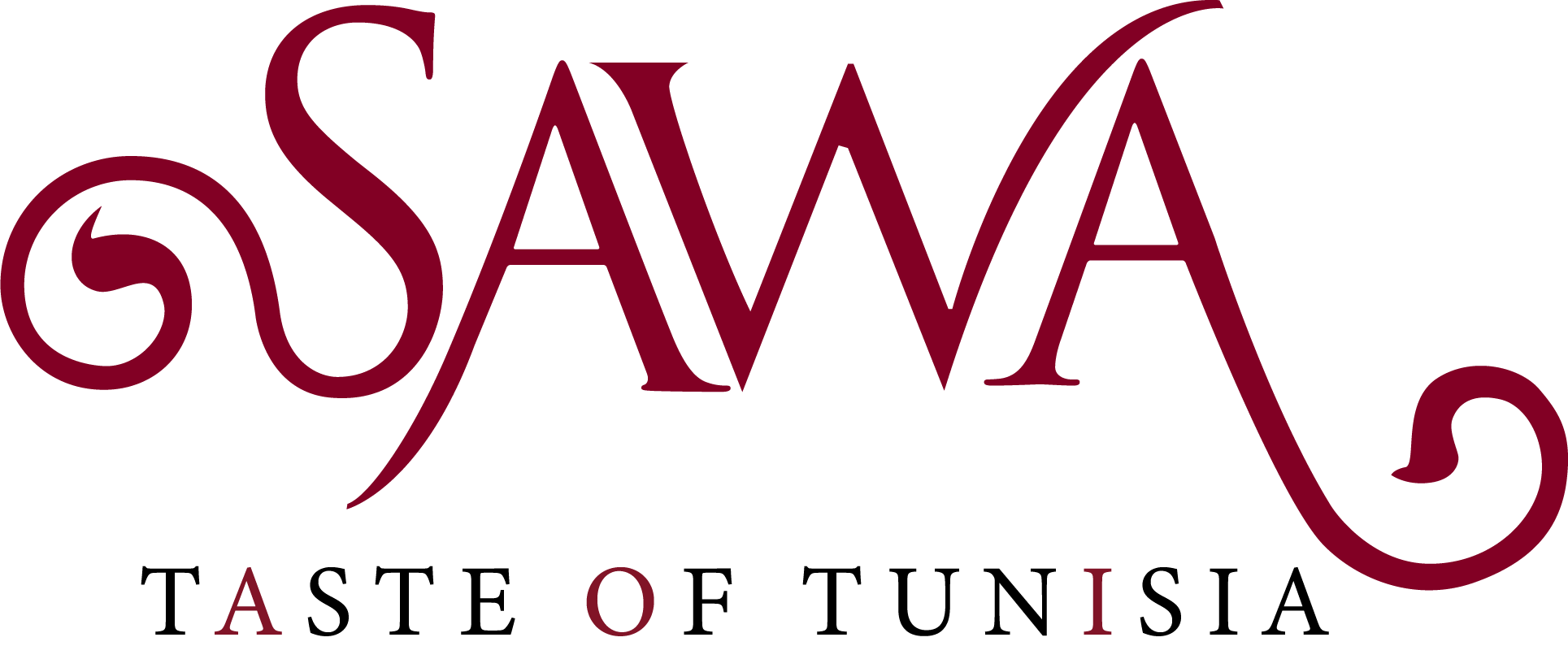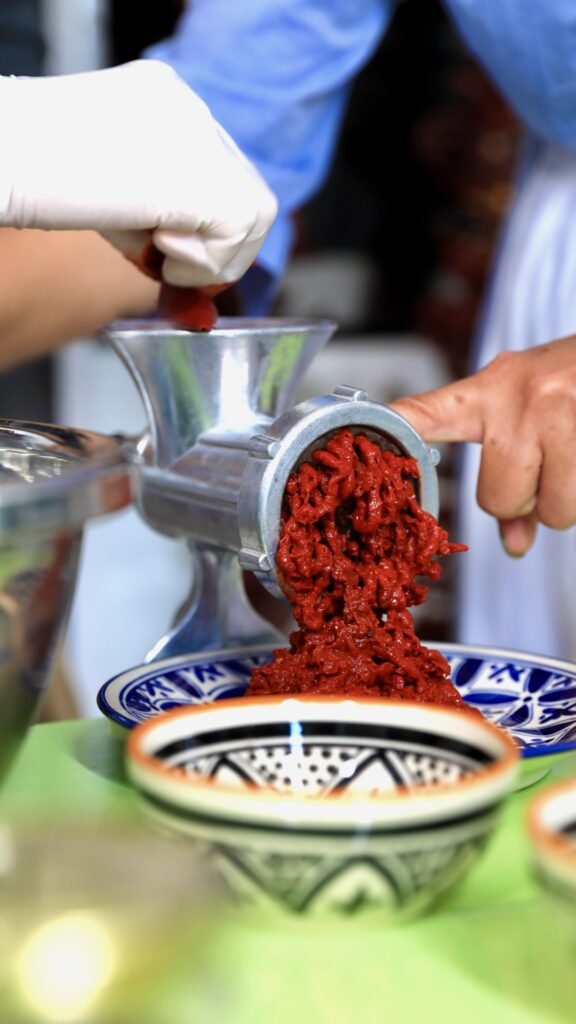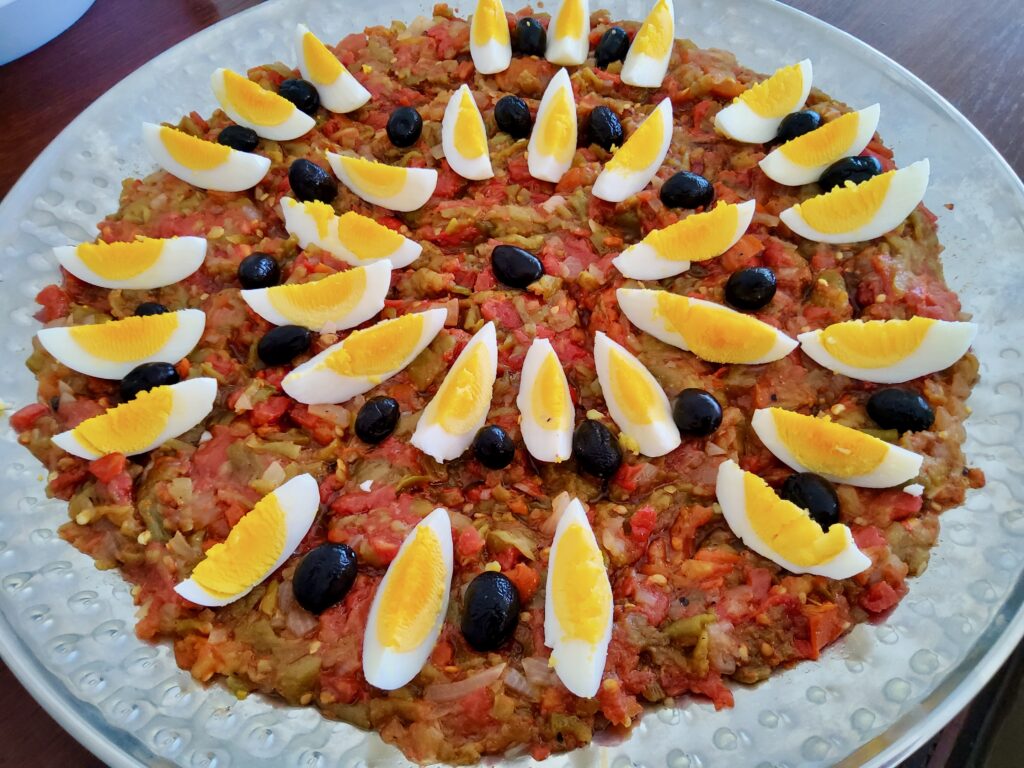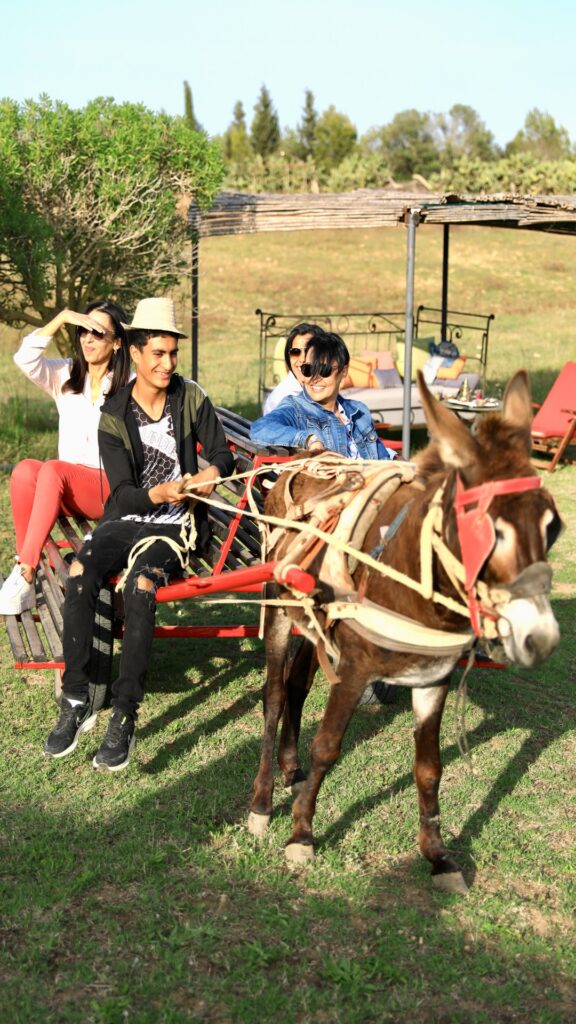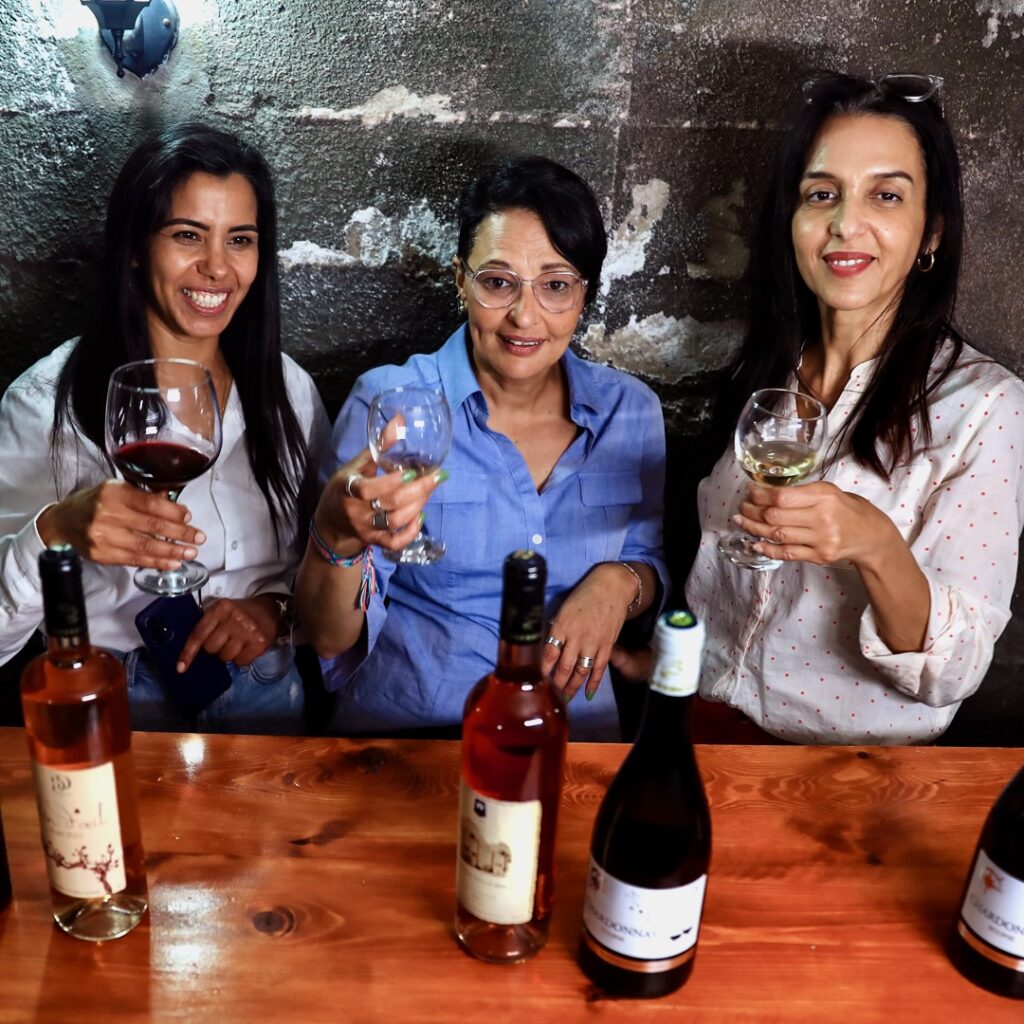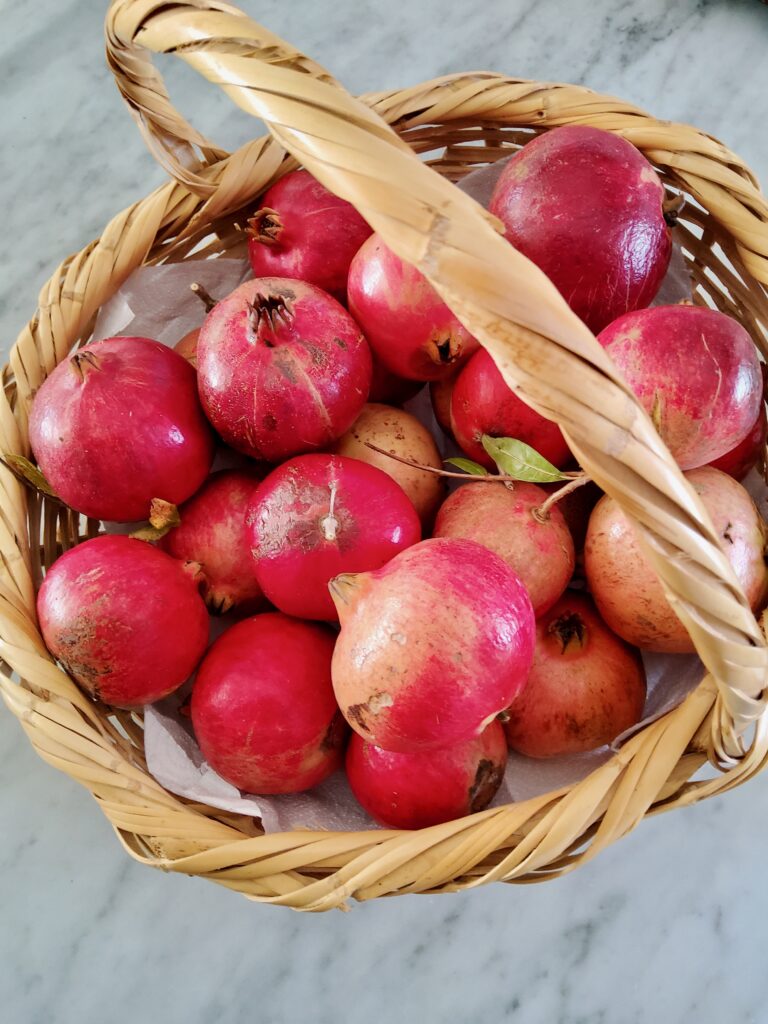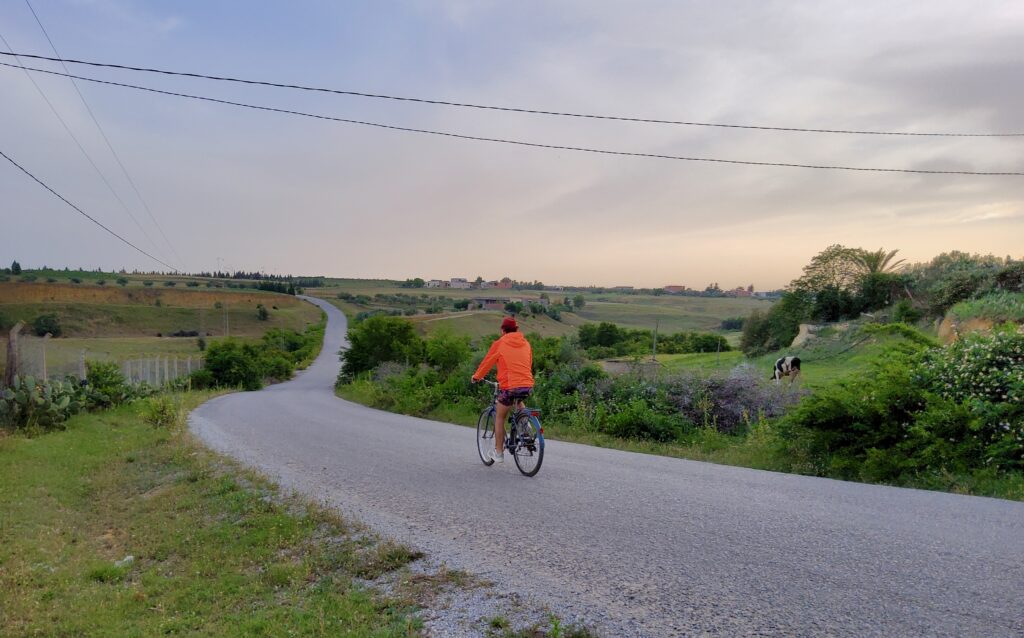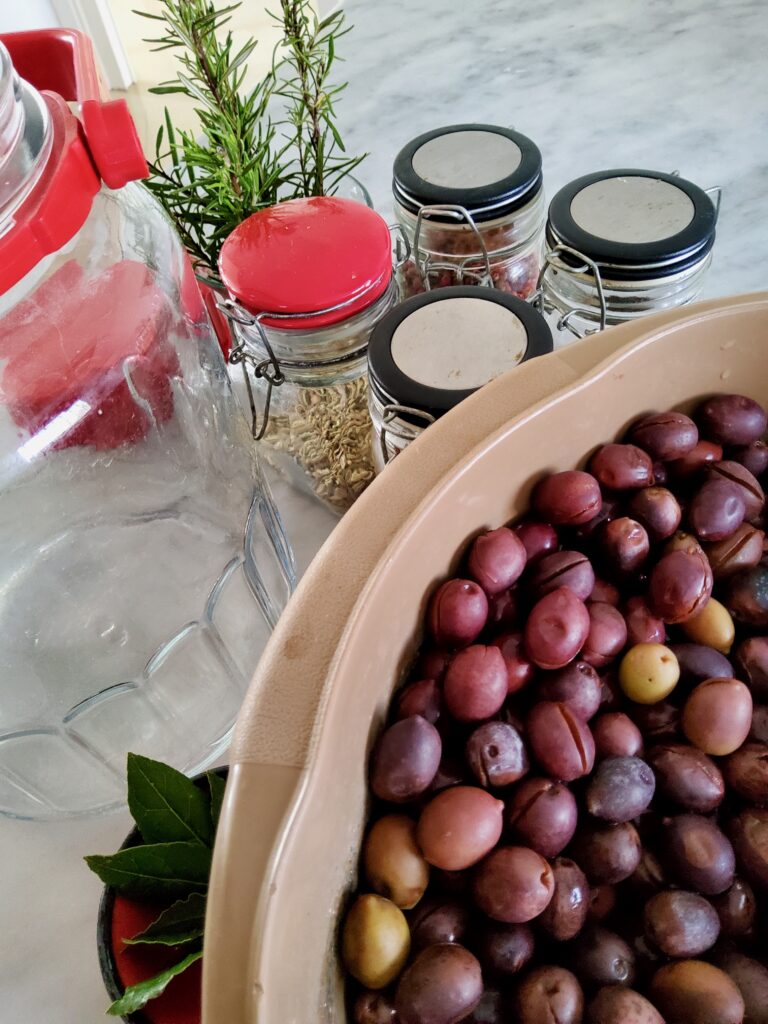Cap Bon Epicurean Tour
4 days/3 nights
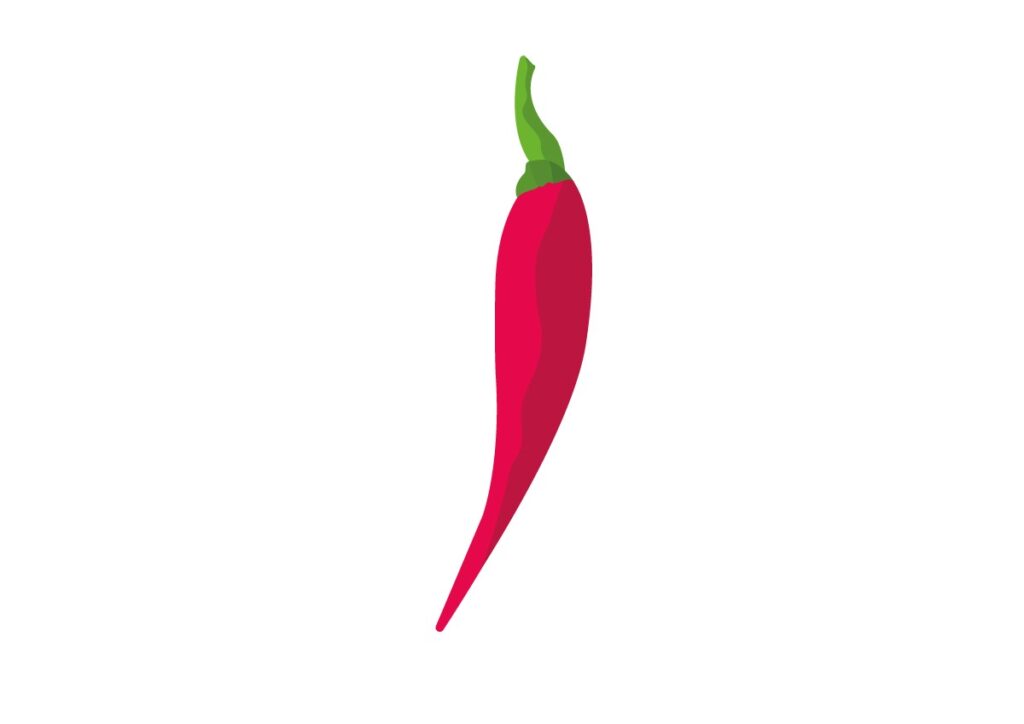
Dates : On request between September and June
This tour has been designed around Lamia’s B&B, in the heart of the Nabeul countryside. You'll be able to taste and prepare some of the most typical dishes of Tunisian gastronomy, as well as ingredients such as harissa and floral waters, and some local wines.
Renowned for its citrus fruits and peppers, the Cap Bon is a promontory located in the north-east of the country that was already cultivated with vines, olives and fruit trees in the 4th century BC, according to Diodorus of Sicily. A vast garden of plains and rolling hills with a wonderful Mediterranean feel, it is the perfect place to discover the the country’s terroir and cuisine.e siècle avant notre ère, selon Diodore de Sicile. Les paysages révèlent une alternance de plaines et de montagne, de vergers d’agrumes, de cultures maraichères et de viticulture, aux couleurs méditerranéennes. C’est une région de choix pour découvrir l’art culinaire du pays, réputée pour la culture des agrumes et des piments.
The itinerary may vary according to the season and the availability of our partners, as we adapt to the rhythm of local artisans and producers.
Day 1 - Welcome to Tunisia!
After being met at the airport by Lamia, your host, guide and interpreter for the days ahead, you'll travel to her farmhouse in the Cap Bon, where you'll be based for the duration of your stay. A promontory located in the north-east of the country, the Cap Bon region is a vast garden, which was already cultivated with vines, olive trees and fruit trees in the IVe century BC, according to Diodorus of Sicily. The landscapes alternate between plains and mountains, citrus orchards, market gardens and vineyards, with a Mediterranean flair. Enjoy the bucolic atmosphere and, if you arrive early in the day, a cooking workshop with Lamia before dinner.
Day 2 - Essential kitchen provisions
After a typical Tunisian breakfast with (tunisois), composé des produits frais de la ferme et de ses alentours, vous prendrez la route pour une journée consacrée à la découverte d’aliments typiques de la région, à commencer par la harissa, que vous apprendrez à préparer. Ce condiment, réalisé à base de piments rouges broyés, a été inscrit au patrimoine culturel immatériel de l’humanité par l’UNESCO en 2022. Il agrémente grand nombre de repas en Tunisie. On parie que vous y prendrez goût !
After lunch, the afternoon will be devoted to floral waters. The distillation of aromatic flowers and herbs - rose, orange blossom, geranium, thyme, rosemary, mint etc. - is practiced in almost every household in the Nabeul region in spring. The wonderful aromas are used to flavor drinks as well as sweet and savory dishes, and to treat ailments and perform rituals, such as welcoming visitors by sprinkling fragrant water on their head or hands. In the evening, a vegetarian dinner, prepared by an exceptional female chef, will be served in her beautifully restored home.
Day 3 - Mlawi, Malsouka and Méchoui: three essential Tunisian dishes
After an Arbi breakfast (literally “Arab”, meaning rustic), we’ll learn how to prepare Mlawi, a flaky pan-cooked flatbread. Often eaten in the morning, it is an emblem of Tunisian street food, as it is perfect for making wraps that are easy to carry oreat while standing. At the end of the morning, we'll set off on foot, by bike or by donkey-cart to visit a nearby vineyard for a cellar tour, tunisienne. En fin de matinée, déplacement à pied, en vélo ou en charrette pour une visite des vignobles des alentours. La découverte des caves sera agrémentée de dégustations de vins et d’un repas composé de Méchoui, grillades, au milieu des tonneaux. La culture de la vigne révèle le passé romain et colonial du pays et la façon dont il résonne avec l’histoire contemporaine du pays.De retour à la ferme, vous serez initiés à la Malsouka: Malsouka in Lamia's Malsouka: est une feuille très fine, à l’instar de la pâte filo, à base de semoule et de farine. Elle est utilisée dans de nombreux plats, salés, dont la brik, une spécialité incontournable du mois sacré de ramadan, comme sucrés. Vous vous régalerez ensuite de vos propres préparations à table.
Day 4 - Departure
Your culinary journey is coming to an end. After breakfast, or lunch, depending on your flight time, you'll be accompanied to the airport for your departure. If you have a late departure, there are plenty of activities around the farm, or in the capital prior to your departure.
Participants: 2 people minimum, 8 people maximum
Price (We accept EUR, CAD, USD, and TND)
- 2 personnes : 1290€ par personne
- 4 personnes : 1090€ par personne
- 6 personnes : 890€ par personne
- 8 personnes : 790€ par personne
Included
- Transfers and ground transportation in Tunisia
- Accommodation
- Meals and snacks
- Visits, workshops, classes, tastings and activities
- All ingredients and equipment for classes and workshops
- Wines at tastings
Not included
- Flights
- Personal travel insurance (cancellation, health, etc.)
- Tips, should you wish to leave any
- Alcoholic beverages you wish to consume during your stay (other than wine tastings)
